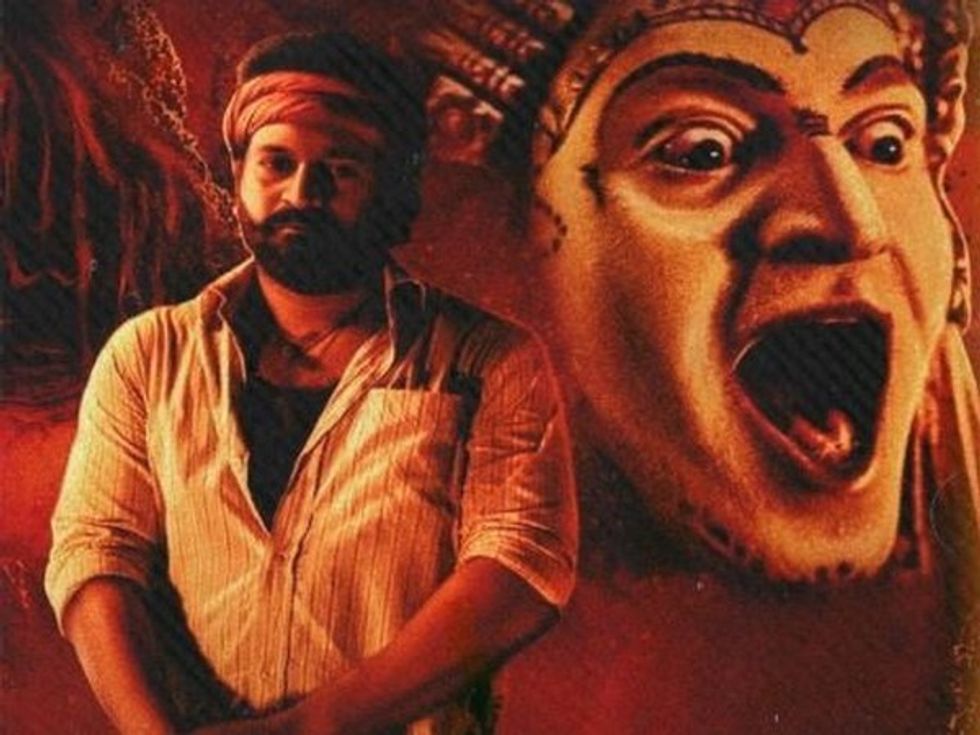Pujya Rameshbhai Oza, known affectionately as Pujya Bhaishree answers questions about the Katha.
What do you believe is the enduring appeal of the Bhagawat Katha?
If you rub a rose, it releases the fragrance of nothing other than a rose. So, too, when you touch the Shrimad Bhagawatam it releases its own essential fragrance – that of truth.
The Shrimad Bhagawat begins with, concludes with and continuously speaks only of Satyam param dhamaha, That highest reality. The Bhagawat sees the truth in the light of love; it is not a sectarian scripture.
Truth is always in the present tense (never in the past or future tense) and thus is eternally appealing to all. Anyone who is aspiring for truth, love and bliss is seeking the nectar of the Bhagawat.
It is also an effortless and effective means to purify the mind and fill it with loving nectar. This, too, is part of its enduring appeal.
What will be the key messages of the Katha in Manchester?
The divine mellows of the love between Lord Krishna and his soul, Shri Radha, shall be the primary focus of the upcoming Katha.
There is a harmonious synergy in the Shrimad Bhagawatam between both the aspect of divine knowledge- Shri Krishna- and the aspect of loving devotion that permeates the whole scripture- Shri Radha. We shall explore their combined form in the Bhagawat.
That which awakens this nectarine joy (rass) in your life and then steadies you in that bliss is called Katha.
Why do you feel it is important to hold Kathas of this nature in the UK and US?Everyone is entitled to live life as a celebration and experience happiness and peace. Our rishis have seen the entire universe as a bird’s nest which is even smaller and more intimate than a ‘global village’.
A village is made up of many families, but a nest contains a single-family and that is why we see the whole world as one family- vasudhaiva kutumbakam.
Sanatan dharma is a way of life founded on eternal values that enable us to live physically, emotionally, intellectually and spiritually fulfilling lives. This treasured heritage is not limited to India but belongs to the whole world.
These are not narrow topics limited to any one religion but rather, useful and universal topics related to life itself.
We are made up of three bodies (physical, emotional, intellectual) and we must take care to nourish and protect all three – not only the gross, physical body.
In light of today’s times of rising intelligence with decreasing purity of character (buddhi sans shuddhi), I have often spoken of the vital need for ‘thought therapy’ and this is exactly what Katha and Satsang provide.
Education and Satsang are both means to manifest the best qualities within us and to remove our inner contamination that leads us into depression and negativity from our blissful and positive nature.
To focus on only one-dimensional development can never lead us to sustainable happiness or to peace either as individuals or as a society.
Spiritual development is essential for emotional fitness. The world is made of duality such as success and failure, but how we maintain our balance in this duality is directly correlated to our spiritual strength and development. This equipoise is essential for peace and life.
How do you intend to attract younger people to the Katha?
Youth are naturally attracted to these principles of friendship, love and harmony and are seeking answers to their life questions. Katha welcomes and kindles a genuine spirit of enquiry and in time, all doubts for each listener are individually resolved, without any discrimination. There are no questions or problems that Katha does not hold the keys to.
Examples relevant to modern life help us understand how to live in this science and technology-driven lifestyle and the youth are in fact, very discerning listeners when it comes to this.
The Bhagawat is the word form of Lord Krishna, the ‘all-attractive one’. He is considered Jagat guru because his teachings and life messages are relevant and helpful for all people in all times irrespective of caste, colour or creed, so the attraction is quite natural.
What is your message to young Asians born and brought up in the UK?
Wherever in the world, you may be born or raised, aim to be a true human being, first and foremost. Without a guiding code of conduct (dharma), man is no different from an animal.
Eating, sleeping, mating and sensory indulgences are found even in those species. Dharma is not an enforced set of regulations – that is the law, which must be followed at all times as per the country of your residence.
Dharma is a voluntary code of conduct that reflects one’s self-discipline and results in benefits both to us as an individual and to society as a whole.
Be true to your motherland (the UK) and imbibe the best of all opportunities available to you here but also be true to your own roots and seek to explore and know yourself.
Respect all religions, but know and love your own faith first. If you are a Hindu, be a proud Hindu.
Aim to continuously learn and grow through education and also to adorn your heart and mind through Satsang and seva.
Everyone works for themselves, but those who are able to rise above selfishness and work for others (Yagya) experience happiness and satisfaction.
Remain a lifelong student and seek association with the truth (Satsang), steering clear of corrupt associations.
Do you believe that the message of the Bhagawat is being lost in the West? What should parents and elders do?
Not at all, it is more in demand now than ever before as bliss and love are two primary, driving human needs. There is a natural emphasis on integrity in the West and this transparency and harmony in thought, word and deed is what we call character.
The Bhagawat Katha purifies our character and helps us integrate what we say, feel and do.
Parents should remember that children follow their example and not their lectures, so try to walk the path of truth as you know it. Impart values and discipline from the young age of five to 15, but thereafter, interact as friends with your children.
Spend some fixed time together as a family every week both in prayer and in sharing meals and life experiences together.
Have faith and confidence in yourself, in your values, in the Lord and also in your children. Practise seeing God in all, and do not encourage a sense of suspicion or hatred towards others.
Have faith and confidence in your children and encourage their spirit of enquiry and journey to knowledge and light. If you do not know the scientific reasons behind our practices, look to connect with those who do know rather than dismissing the valuable questions of your children.
Try to cultivate relationships with the wise and read good books. Just as both the heart and the brain are of vital importance to the body, a home should contain both a temple and a library. This will ensure that both the heart and intellect remain healthy and life remains balanced and complete.
What is the appeal of the Bhagawat to you personally?
The open-minded and all-encompassing nature of Vishnu and the emphasis placed on developing a love for all makes the Bhagawat truly special.Through this Bhagawat dharma, we learn three things – how man should interact with his fellow man; how man should interact with other living species and how man should interact with Mother Nature.
These are absolutely universal topics and everything is contained within these teachings. The Bhagawat is the final of all 18 Puranas and thus it is complete unto itself.
It is a scripture that goes beyond the concepts of only sin and merit, heaven and hell.
Instead, the Bhagawat initiates you into motiveless and unceasing love for all living beings as the highest form of dharma.
Love that has a cause will cease someday either when fulfilled or if unfulfilled for long enough. Love without any motive is the only force that can truly be continuous and this is the highest gift of the Bhagawat.
All spiritual efforts that do not culminate in such love are nothing but mere activity (shrameva hi kevalam).
You are one of the most revered katharkars in India and have delivered many hundreds of kathas all over the world. What is it that keeps you going?
When one loves what one is doing there is no question of tiring. All individuals are on one of two possible journeys – from what we are to what we are not; or from what we are not to what we are.
The former is called Sansar and it wears us out while the latter is called adhyatma and is a source of true rest and bliss.
The vyaspeeth is my place of rest and joy and every speaker of the vyaspeeth is in truth a listener himself, so I derive immense joy in myself drinking and sharing this treasure of divine love with all.
Your interest, curiosity and love motivate me to speak of the Lord.
Wherever we experience nectar (rass), we experience joy (anand) and find strength (bal) and innovation (navonmesh). This is what keeps the journey naturally joyful.





 An old Instagram story of Victoria BeckhamInstagram Screengrab
An old Instagram story of Victoria BeckhamInstagram Screengrab  David Beckham, Victoria Beckham and Brooklyn Beckham attend the Louis Vuitton Menswear Fall/Winter 2018-2019 showGetty Images
David Beckham, Victoria Beckham and Brooklyn Beckham attend the Louis Vuitton Menswear Fall/Winter 2018-2019 showGetty Images  Brooklyn Beckham and Nicola Peltz attend the Mugler Womenswear Fall/Winter 2024-2025 show Getty Images
Brooklyn Beckham and Nicola Peltz attend the Mugler Womenswear Fall/Winter 2024-2025 show Getty Images 









 The rapper wears a custom black Schiaparelli gown with graphic fringeInstagram Screengrab/
The rapper wears a custom black Schiaparelli gown with graphic fringeInstagram Screengrab/ Cardi B and Stefon Diggs cozy up on a yacht during Memorial Day weekend in Miami Instagram/iamcardib
Cardi B and Stefon Diggs cozy up on a yacht during Memorial Day weekend in Miami Instagram/iamcardib 
 Kareena Kapoor’s Instagram story adds to outrage over copied Indian footwearGetty Images
Kareena Kapoor’s Instagram story adds to outrage over copied Indian footwearGetty Images  Kareena Kapoor flaunts her Kolhapuri chappals in a vacation photoInstagram screengrab/
Kareena Kapoor flaunts her Kolhapuri chappals in a vacation photoInstagram screengrab/  Kolhapuri chappals have been crafted for centuries and received GI tag in 2019 iStock
Kolhapuri chappals have been crafted for centuries and received GI tag in 2019 iStock 
 Andrew Garfield and Monica Barbaro arrive hand in hand at Wimbledon in all whiteInstagram/
Andrew Garfield and Monica Barbaro arrive hand in hand at Wimbledon in all whiteInstagram/ The Hollywood pair appear relaxed and close at Wimbledon 2025Instagram/
The Hollywood pair appear relaxed and close at Wimbledon 2025Instagram/
 Kantara Chapter 1 poster Instagram/rishabshettyofficial
Kantara Chapter 1 poster Instagram/rishabshettyofficial  Kantara poster (Image Source: X) Print-160
Kantara poster (Image Source: X) Print-160  Kantara
Kantara  Rishabh Shetty in a still from Kantara
Rishabh Shetty in a still from Kantara